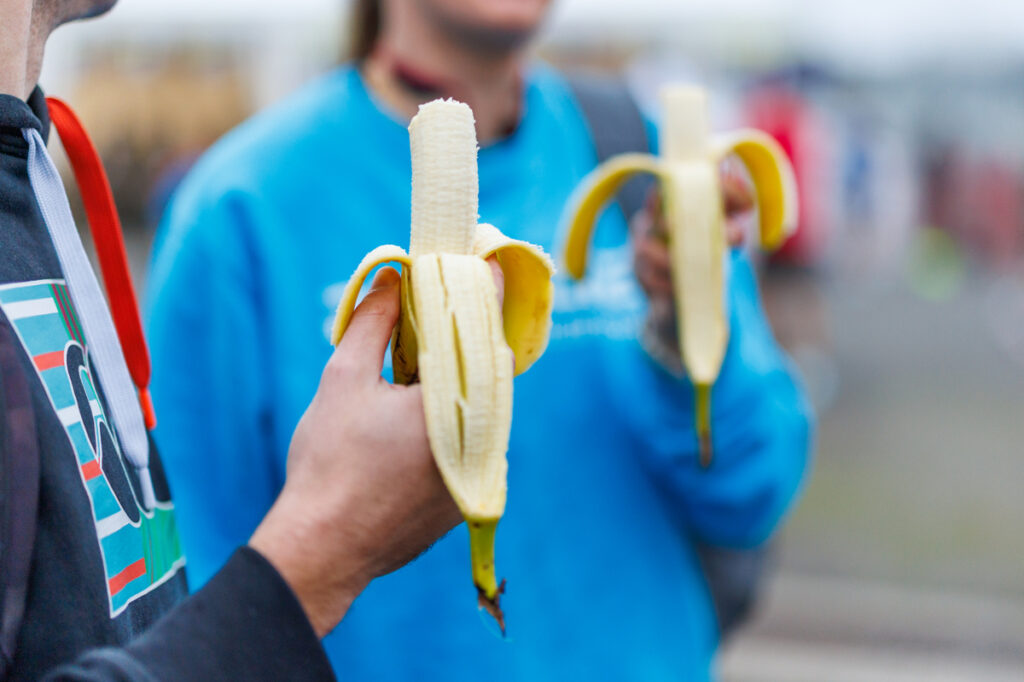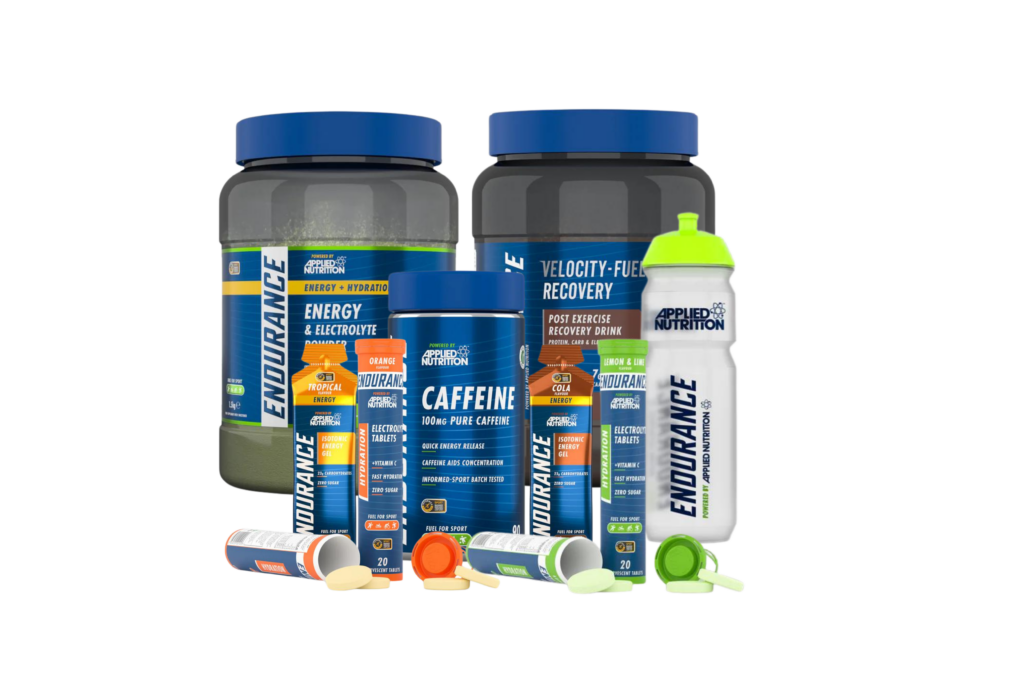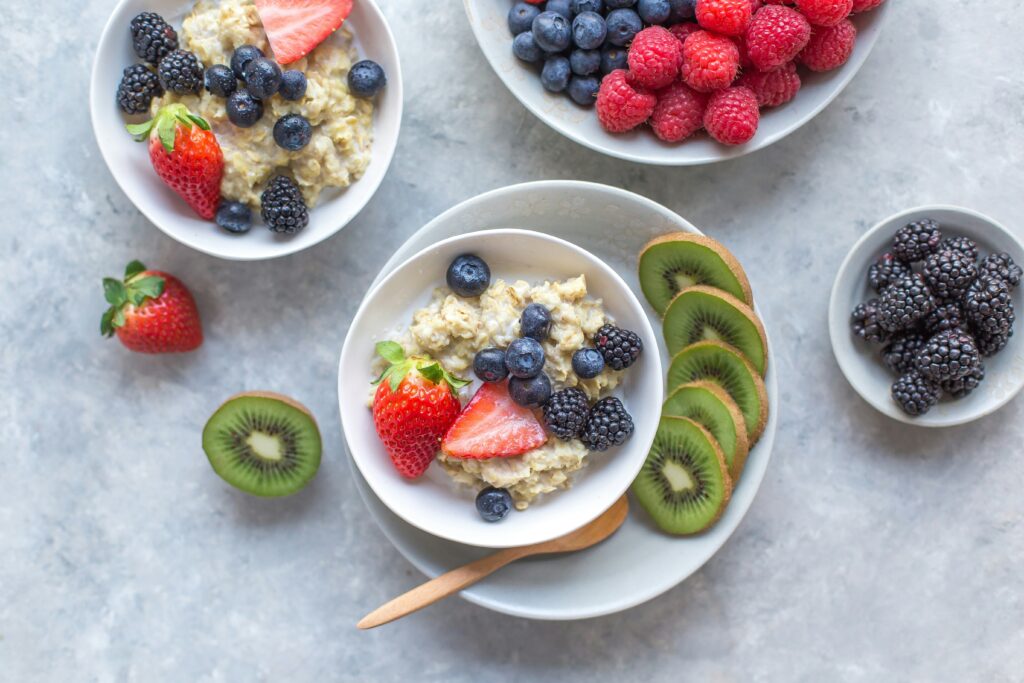MAKE THESE SMALL DIET CHANGES TO SUCCEED AT YOUR NEXT HALF MARATHON
Preparing for a half marathon is more than just logging miles and eating a big bowl of pasta the night before the event.
As your body adapts to higher mileages, so must it adapt to the nutritional needs required to fuel running these longer distances.

Well-planned nutrition can set you up for half marathon success.
A simple yet well-planned nutrition approach can make all the difference to your half marathon performance. That’s why we’re bringing you 5 easy diet changes to practise before event day on Sunday 4th October 2026.
TIP: start implementing the following practices early for the best results.
1. UP YOUR CARBOHYDRATES
The body’s preferred fuel for running is carbohydrates, so increase the quantity of these starch-rich foods in your diet during training. This can be as easy as adding an extra slice of toast at breakfast, with slow-release carbohydrates such as wholegrains, oats and sweet potatoes being the foundation of your diet. Carbohydrates are crucial for recovery too, especially after long or intense runs, so make sure you’re not relying on protein shakes alone after these sessions.

Carbohydrates should be the base of your diet while training.
2. UP YOUR HYDRATION
Similarly, stay on top of your hydration game well before the event by getting used to drinking plenty of water regularly throughout the day. This also applies to rest days. On training days, take small sips of water an hour or so before running rather than gulping; this is especially important on event morning when you’ll want to make sure your stomach is settled.
You can also practise using electrolyte-carb mixes such as Applied Nutrition Energy & Hydration Powder both before and during your run (if you plan to carry water).

3. ADJUST YOUR MEAL TIMINGS
Is the time that you’re eating optimal for your training? A few small tweaks could set you up for half marathon success. Ask yourself the following questions and adjust your meal routine accordingly:
- Is the time I eat dinner allowing me to sleep well at night, and wake up hungry for breakfast? Consider that this is ideal for event day, when early starts are likely.
- Have I established a good meal routine before my runs – i.e. I know how long I need to digest my food, and how well I respond to smaller snacks before runs?
As a rule of thumb, aim to eat meals no less than 2 hours before running. Pay attention to these timings and how you feel – for instance, some people prefer to eat 3 hours before they run and have a small snack 1 hour before they train.
4. ADD FUEL TO YOUR LONG RUNS
Don’t leave it too late to practise fuelling on your long runs. As exercising for extended periods depletes glycogen (your body’s main source of energy) it’s recommended that you consume fast-acting carbohydrates at regular intervals.
Applied Nutrition recommends taking 1-3 of their 23g (carbohydrate) Isotonic Energy Gel every hour of running. Remember that everyone is different, and the key is to practice before the big day.
5. TWEAK YOUR BREAKFAST
Breakfast is arguably the most important meal to practice, as you’ll need to find one that gives you maximum energy while avoiding digestive issues before the event. Pay attention to what you eat and when, and make small tweaks depending on how you feel (doing your long runs in the morning is preferable as it mimics event conditions).
For example, you may find that removing excess fats from your breakfast makes you feel more energised, in which case you could swap dollop of peanut butter for a spoonful of honey on your porridge.
Similarly, figure out how caffeine fits in to your training. While some people respond well to a cup of coffee, you’ll want to be confident it won’t cause any unplanned toilet trips on the day…

We hope that this article has been helpful in planning your nutrition in the lead up to the event. Remember that it’s important to practise these habits so you’re confident with your diet and can focus on your event goals.
Disclaimer: Please note that everyone has different and individual nutrition needs, please consult a GP if you plan to make any changes to your nutrition.
